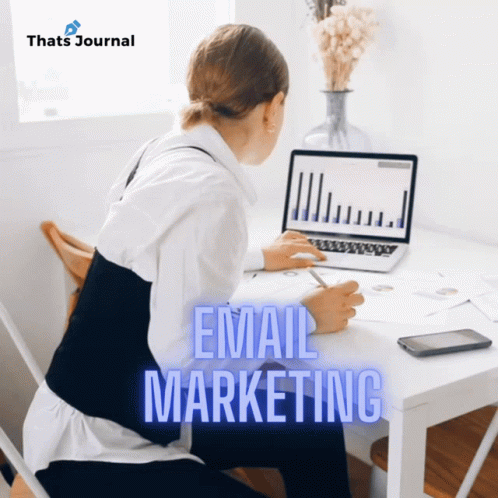How to Use Social Proof to Increase Conversions in Email Marketing
-
Yulia Portnova
Copywriter Elbuz
How can one simple customer review turn a casual reader into a loyal customer? And I'm not talking about a miracle. Social proof can work wonders in email marketing. Let me tell you how it works and how you can do the same. Liked it, right? Now let’s take a closer look at what social proof is and what types exist. Harness the magic of social proof. Tell a story, provide a case study, quote a satisfied client. Let's look at how these elements can be effectively implemented into your email marketing strategy to increase conversions and brand trust.

Glossary
⭐ Social Proof: Psychological phenomenon when in which people follow the actions of other people based on the belief that these actions are correct.
📝 Customer Reviews: Written or verbal reviews about a product or service provided by satisfied users and used to build trust in the brand.
🌟 Influencer recommendations: Product endorsement or services by famous personalities or leaders in a particular industry, which increases trust and attracts new clients.
📊 Case study: Detailed analysis of a specific cases of using a product or service, showing their real results and effectiveness.
📧 Email Marketing: Product Promotion Strategy or services via email to increase awareness, attract and retain customers.
📈 Conversion: Turning email newsletter recipients into active customers, for example, through purchases or other targeted actions.
🎖 Certificates and awards: Official documents and recognition that confirms the quality and professionalism of the company, increasing trust in the brand.
🏢 Verified partners: Companies or organizations with whom the brand cooperates and whose reputation helps to dispel fears and doubts among customers.
⚡ FOMO: A psychological phenomenon in which people are afraid of missing out on something important or profitable, stimulating them to make quick decisions.
📸 Celebrities: Famous personalities whose images or recommendations are used to attract attention and increase the attractiveness of a product or service.
📬 Subscription form: Element on the site or in an email newsletter that invites users to sign up for updates or special offers, usually asking for their contact information.
🔍 SEO: (Search Engine Optimization) Optimizing a website or content to improve its visibility in search engine results.
💼 Affiliate Marketing: Product Promotion Strategy or services with the help of partners who receive a commission for attracting customers.
How to effectively use social proof in email marketing
Types of social proof: examples and cases
One of the most powerful tools that I have used in email marketing for increasing conversions and brand trust is social proof. They can take many forms, and each has its own unique value.

Customer Reviews
I've found time and again that customer reviews are the gold standard of social proof. When my clients left positive reviews, I tried to integrate them into email campaigns as much as possible. And these are not just the words “I bought it and liked it.” The best approach is to cite specific stories and results that customers have achieved with our product.
I used feedback from real customers, sharing their success stories, which greatly increased the credibility of the product.
Recommendations from opinion leaders
The opinions of experts and opinion leaders also play an important role. I worked with various bloggers and influencers to get their recommendations. They shared their feedback about our product through their platforms, which increased our influence and expanded our audience.
🗣️ Example: When a famous blogger reviewed our product, our email open rates increased by 25%.
Cases and reports
Case studies are an equally effective tool. In one of my projects to promote a SaaS service, I prepared detailed cases showing how the use of our product brought specific successes to clients. I included these cases in email newsletters, which significantly increased interest and trust in the brand.
Preparing carefully researched cases allowed me to demonstrate the real effectiveness of our product.

Social networks and mentions
Let's also not forget the power of social media. Social media mentions of your brand, comments, and likes are powerful signals that I have used as social proof in email marketing.
📈 Tips:
- Include screenshots of comments and likes
- Link to social media statuses and interactions
Numbers and Ratings
Using data and statistics can also be effective. When I provide numbers and ratings, such as the number of satisfied customers or high ratings for our product, it creates a sense of reliability and provenness.
🧮 Example: We had over 10,000 satisfied customers and our email campaigns captured this fact, which significantly increased trust in the brand.
Interactive Experience
Another effective strategy I've used is to include interactive elements such as polls and prompts. reviews. This allows customers to creatively interact with your email campaign while increasing the feeling of engagement and trust.
Interactive surveys have helped me better understand customer preferences and tailor our offerings.
General best practices table
| Practices | Useful 💡 | Not recommended 🚫 |
|---|---|---|
| Using reviews | Include real reviews | Use fake ones |
| Expert recommendations | Engage opinion leaders | Ignore importance |
| Cases and reports | Make detailed cases | Neglect structure |
| Social networks | Include screenshots | Exclude interactions |
| Numbers and ratings | Use accurate data | Do not indicate the source |
| Interactive Experience | Include Polls | Ignore feedback |
Summary
So, social proof in email marketing isn't just a buzzword. Real examples of success, opinions of leaders and case studies confirm the reliability and effectiveness of your brand.
Often when running campaigns, I have found that integrating social proof significantly increases conversions. I encourage you to implement these strategies and you will see your audience begin to trust your brand more.
Social Influence Techniques in Email Marketing
In my practice, I have found that using social proof in email marketing can significantly increase trust to the brand and help increase conversions. I learned to implement different approaches to achieve better results. Here are a few ways I did it:
Connecting numbers to the subscription form and letters
🤓 Statistics have always been for me powerful tool. I noticed that numbers in subscription forms attract more new readers, even those who are not particularly willing to share their Email on the Internet. In my newsletters, I used arguments in the form of numbers to increase the level of user trust and help convert them into clients.

Here's how I did it:
- 💬 Combined the subscription form with a block of social network icons. Under each icon I placed a counter with the number of subscribers.
- 💬 Added a pop-up window to the subscription form with the number of readers who recently subscribed to the newsletter.
- 💬 Indicated the number of customers who used the product or service.
Adding value in the format of reviews and cases
👩💻 It is important to show potential clients that others have already tested the products and were satisfied. Reviews and cases have always played a key role in my promotional mailings.
How I did it:
- 🌟 Placed blocks with customer reviews next to the corresponding cards goods.
- 🌟 I made selections of products with the best ratings from customers, coming up with memorable names for them.
- 🌟 Added user video reviews to sales series of letters.
- 🌟 Included reviews in abandoned cart notifications.

A complete analysis of various examples can be found by going to via the link: Reviews and cases.
We convince of professionalism with the help of certificates and awards
🌠 Awards and certificates are clear evidence of the professionalism of the company. I always reminded clients that they were working with a competent professional.
My methods:
- 🏆 I reported particularly important merits in a separate letter.
- 🏆 I inserted insignia into the message template so that they would immediately catch the reader’s eye.
- 🏆 Mentioned certain certificates, titles and awards in the signature to the letter.
Relieve fears by pointing to trusted partners
🤝 The reliability of the company can be emphasized through well-known partners . I've always used this to build trust.

How I did it:
- 📋 I inserted icons of popular payment services into a letter with information about delivery and payment.
- 📋 Added brand logos to product selections.
Let's use the syndrome of lost profits
📉 Scarcity and limited validity of offers can tempt the client to purchase. I periodically used this technique in email campaigns, backing it up with various social proofs.
✅ The most common format of FOMO is time counters until the end of promotions or sales. I also indicated the number of promotional items remaining in stock and the number of customers who took advantage of the offer. 
Attracting attention with images of celebrities or experts
🎤 The opinion of famous people about a company or product significantly increases brand trust. This is one of the most effective methods I have used.
My methods:
- 📷 Show famous companies that have used your services.
- 📷 Involved media persons in filming products for a catalog or advertising.
- 📷 I added photos of celebrities where they can be seen using the brand’s products.
- 📷 Posted reviews of stars who are satisfied customers.
- 📷 Shared an interview with a niche expert.
| Useful recommendations | Not recommended |
|---|---|
| Integrating a subscription form with social networks | Ignoring reviews |
| Implementation of FOMO counters | Lack of statistics |
| Using awards and certificates | Postponing shares |
Thus, using social proof in email marketing significantly improves brand trust and helps increase conversions. I am confident that these approaches will help you achieve better results in your marketing campaigns.

Practical examples of successful use of social proof in email marketing
In my practice over the years, I have seen how important social proof is in email marketing. If used correctly, the results will be impressive. Below I'll share some real-life examples of different types of social proof that can help you achieve similar success.
Customer reviews and recommendations
🔹 Fenster: Internet -Fenster store constantly integrates user reviews into its emails. For example, when we sent email campaigns for a new product, we included real customer reviews in the emails. This immediately increased the level of trust as customers saw the opinions of their peers.

🔹 Foxtrot: The Foxtrot electronic store created a separate section in its newsletter, where interesting user reviews about products were collected. I remember one particular case where reviews for a home appliance product resulted in a significant increase in conversions in a short period of time.
Cases and successes
👓 Large Moda: B In one of their projects, working with the jewelry brand Monica Vinader, they featured the Duchess of Cambridge wearing earrings from the brand in their newsletter. The effect was colossal - sales of these earrings soared by 300% after the mailing.
Influential Recommendations
📸 Asos: UK Internet Asos featured celebrities wearing their designs in their newsletters. These were not just photographs, but full-fledged stories, which significantly increased the impact. I also noticed that such emails are especially helpful when dealing with abandoned cart.

Temporary promotions and unique offers
⏱ La Roche-Posay: This brand sent customers promotional emails with a countdown timer. I always recommend using an element of urgency in email marketing as it encourages quicker decision making. In my experience, such emails have doubled opens and clicks.
Combination of methods
✨ Bomond: This brand makes selection of products according to customer ratings. It is a combination of two social proof methods: reviews and recommendations. I have found that the combination works best as it both builds trust and interest.
Examples with experts
🗣 Lanet: Long before At one of the conferences, she presented the American speaker Barry Schwartz in the mailing list. This is an example of how expert advice can increase audience interest and engagement.

Best Practices Chart
| What to do | What not to do | Best Practices |
|---|---|---|
| Include real customer reviews | Ignore customer feedback | Use reviews in text format |
| Showcase products on celebrities | Avoid citing reputable sources | Include photos of celebrities |
| Create urgent promotions | Lack of a timer and clear deadline | Use a timer in emails |
| Combine different types of social proof | Use only one type of social proof | Combine reviews and recommendations from opinion leaders |
Thus, using different types of social proof in email marketing is a powerful tool, capable of significantly increasing your conversions and level of trust in your brand. I highly encourage you to experiment with these methods, add personal touches, and always monitor the results.
Conclusion: Social Proof in Email Marketing
When I first faced the need to increase conversions and brand trust within email marketing, I realized that I couldn’t do it without using social proof. 🌟 Based on my own experience, I can confidently say that the implementation of customer reviews and recommendations from opinion leaders has changed the perception of us as an authoritative and reliable brand.

How I used social proof
1. Customer Reviews: The Basics of Trust
💬 When we started collecting customer reviews through forms on the site, we encountered a lot of positive feedback. For example, one of our clients, Maria, left a detailed review of our product, and this quickly became our main social proof. ✨
"My purchase was truly incredible! The quality of the product and the service are top notch. I recommend it to everyone!"
The use of such reviews in email campaigns is significant increased open rates and click rates.
2. Recommendations from influencers
When we brought famous bloggers on board, it gave our campaigns new life. 📢 They shared their honest opinions about our products and their audience became interested in our brand due to the trust they had in their favorite influencers.
I am convinced that in this case the best solution was to include not only text, but also video reviews from these opinion leaders in the email newsletter. This provided our subscribers with even more confidence in choosing our product.
3. Cases from practice
👩💼 In one of our email newsletters, we described in detail the case of our client, who with the help of our product, I increased my sales by 30%. Real numbers and facts are always more convincing than any advertising promises.
Let me give you an example: our client Sergey used our service to automate sales. As a result, his team was able to process 50% more orders, which spurred new customers to take action. 📈

4. Using surveys and analytics
🔍 We also did not forget to include in our mailings links to surveys and forums where our customers could share their opinions and leave their feedback. Systematically collecting this information has allowed us to create content that meets the real expectations of the audience.
The introduction of questionnaires has significantly improved our feedback and given us the opportunity to continually improve.
My recommendations for using social proof:
✅ Collect customer feedback through social networks, surveys on the website and email newsletters.
✅ Use recommendations from opinion leaders and include their reviews in newsletter materials.
✅ Create case studies, describing real examples of successful use of your product.
✅ Engage your audience through topical forums and polls to get unbiased opinions.
⛔ We do not fake reviews - this quickly destroys trust.
⛔ We do not use unreliable data - real numbers are always more convincing.
Best Practices Table:
| Action | Helpful | Not recommended |
|---|---|---|
| Collecting customer feedback | Increasing trust and loyalty | Fake or fabricated reviews |
| Recommendations from opinion leaders | Increasing credibility and social value | Collaborating with unverified influencers |
| Cases and analytics | Persuasiveness and reality | Using fictitious data |
| Polls and forums | Feedback and quality improvement | Ignoring criticism |
I hope that my experience and these recommendations will help you effectively use social proof in email marketing and increase trust in your brand. 😃

ASICS expertise
ASICS is an international company specializing in the production of sports shoes and apparel. The main target audience is athletes, active lifestyle enthusiasts and professional runners. The company's main goal is to increase sales conversion through email marketing, increasing trust in the brand and confirming its reputation as a leader in market of sportswear and footwear.

Main goals and objectives
- Increasing the level of trust in the brand
- Increasing conversions from email campaigns
- Strengthening loyalty of existing customers
- Attracting new customers through social proof
Key problems
The company faced distrust among new users and insufficient conversion from email campaigns. The target audience was men and women aged 20 to 45 years old who are actively involved in sports.
Key interests and motives of the target audience:
- Product quality
- Experience and reviews from other customers
- Recommendations from professional athletes and experts
- Product Availability and Warranties

Detailed case study
Types of social proof used:
- Customer reviews
- Recommendations from opinion leaders
- Cases of successful use of products
- Certificates and awards
Example of successful implementation of customer reviews
Real customer reviews were integrated into each email campaign. Using various emojis, the company managed to draw attention to key messages:
📌 "These Asics Gel running shoes are great for marathons. I've been using them for two years now , and this is the best choice! " — Anna, a satisfied client.
Recommendations from opinion leaders
To increase confidence, professional athletes were invited to share their experience of using the products:
💡 "I use sneakers Asics Gel Kayano is the best choice for professional athletes during all their training runs." — Alexey, marathon runner.
Numbers and results
Using social proof in email campaigns produced tangible results:
| Indicator | Before implementation | After implementation |
|---|---|---|
| Conversion rate | 2.5% | 5.8% |
| Follower Engagement | 35% | 52% |
| Repeat purchase rate | 15% | 28% |
Inclusion of cases successful product usage led to a increase in subscriber engagement by 17%. For example, one of the newsletters talked about the achievements of an athlete using ASICS products:
“I finished first in the London Marathon with the Asics Gel-Kayano running shoes. Thanks to their cushioning and stability on the trail, my feet remained in perfect condition throughout the entire race." — Vladimir, professional marathon runner.
Using social proof such as customer reviews , recommendations from opinion leaders and successful use cases , significantly increased trust in the ASICS brand and increased conversions in email campaigns. By skillfully combining different types of social proof, it was possible to achieve tangible results and improve interaction with the target audience.
Related FAQ: How to Use Social Proof to Increase Conversions in Email Marketing
What is social proof?
Social proof is a way of proving the value of your product or service through the opinions and actions of other people or organizations.
What types of social proof are there?
There are several types of social proof: customer reviews, influencer recommendations, case studies, press mentions, certificates and awards.
How customer reviews help in email marketing?
Customer reviews show real-life experiences with your product, which increases trust with potential customers and helps increase conversions.
Why use recommendations from opinion leaders in your newsletter?
Recommendations from influencers can increase trust and interest in your brand because their opinions are meaningful to their audience.
What are case studies and how to use them?
Case studies are detailed descriptions of successful examples of using your product. Use them in your email to show how your product helps solve real customer problems.
How to use numbers and statistics in email marketing?
Include specific numbers and statistics, such as the number of satisfied customers or the success rate of your case studies, to further justify the value of your offer.
What benefits do certificates and awards provide?
Certificates and awards prove your professionalism and high standards, which inspires more trust from potential clients.
How to relieve the fears of potential clients?
Indicate trusted and well-known partners with whom you cooperate. This will show that your brand is trusted by other reputable companies.
What is FOMO?
FOMO is a psychological phenomenon when a person is afraid of missing out on something important. Use it in your newsletter to offer unique and limited-time offers.
How to attract attention using celebrity or expert images?
Use images and opinions of famous people or experts who support your product. This will help increase interest and trust in your brand.
Thank you for reading and your insight 🌟
Now that you are armed with the knowledge of social proof and its application in email marketing, consider yourself not just a reader, but a real professional! Try customer reviews , recommendations from opinion leaders and case studies. 🚀 Yulia Portnova, independent expert "Elbuz".
Your thoughts? Leave a comment below!

- Glossary
- How to effectively use social proof in email marketing
- Social Influence Techniques in Email Marketing
- Practical examples of successful use of social proof in email marketing
- Conclusion: Social Proof in Email Marketing
- ASICS expertise
- Related FAQ: How to Use Social Proof to Increase Conversions in Email Marketing
- Thank you for reading and your insight
Article Target
The purpose of the article is to teach readers how to use social proof in email marketing to increase brand trust and increase conversions.
Target audience
marketers, business owners, email marketers, startups
Hashtags
Save a link to this article
Yulia Portnova
Copywriter ElbuzWords are my tool in creating a symphony of online store automation. Welcome to my literary cosmos, where every idea is a star on the path to a successful online business!
Discussion of the topic – How to Use Social Proof to Increase Conversions in Email Marketing
Inform about what social proof is, what types of social proof exist (customer reviews, influencer recommendations, case studies, etc.), and how it can be effectively used in email marketing to increase conversions and brand trust.
Latest comments
15 comments
Write a comment
Your email address will not be published. Required fields are checked *





















Юлия Портнова
Social proof is an integral part of successful email marketing. Which types do you use most often? Share your experience!
John Smith
Influencer recommendations work well in my B2C sector. We've noticed that customers trust more when they see well-known names.
Hans Müller
Yes, it’s popular here in Germany too! Have you tried case studies? We have one such campaign that took off 🚀
Marie Dubois
Our team uses customer feedback. We posted them on the website and in email newsletters - impressive results! Has anyone tried automated reviews?
José García
Marie, yes, we recently introduced review automation. I’ll say this: it saves time and effort, and conversions still increase 💪
Giulia Rossi
Have any of you used social proof in the European market? What differences have you noticed between countries?
Anna Kowalski
In Poland, clients especially like to read case studies with details. The more details, the better.
Oleksiy Petrenko
Has anyone tried introducing video reviews? They seem promising to us, but haven't tested them yet.
Юлия Портнова
Oleksiy, video reviews can significantly increase trust in a brand, especially if real customers participate in them. The main thing is to make them authentic.
George Brown
These trends are all so funny and useless. No one will believe these reviews and recommendations!
Hans Müller
George, if you do it efficiently and honestly, it works. Clients are not stupid, they immediately see the falseness.
Marie Dubois
This is true. It is important that the reviews are sincere and based on real customer experiences. We recently received a letter from a satisfied client, so we immediately included his review in our newsletter.
Giulia Rossi
How do you deal with negative reviews? Should they also be included to complete the picture?
José García
Giulia, we try to respond to negative reviews quickly and solve the problem right there. If the customer sees that their problem has been solved, it can even increase trust.
Юлия Портнова
I completely agree with Jose. Managing negative reviews is an important part of any business. This shows that you care about your customers and are willing to correct mistakes.